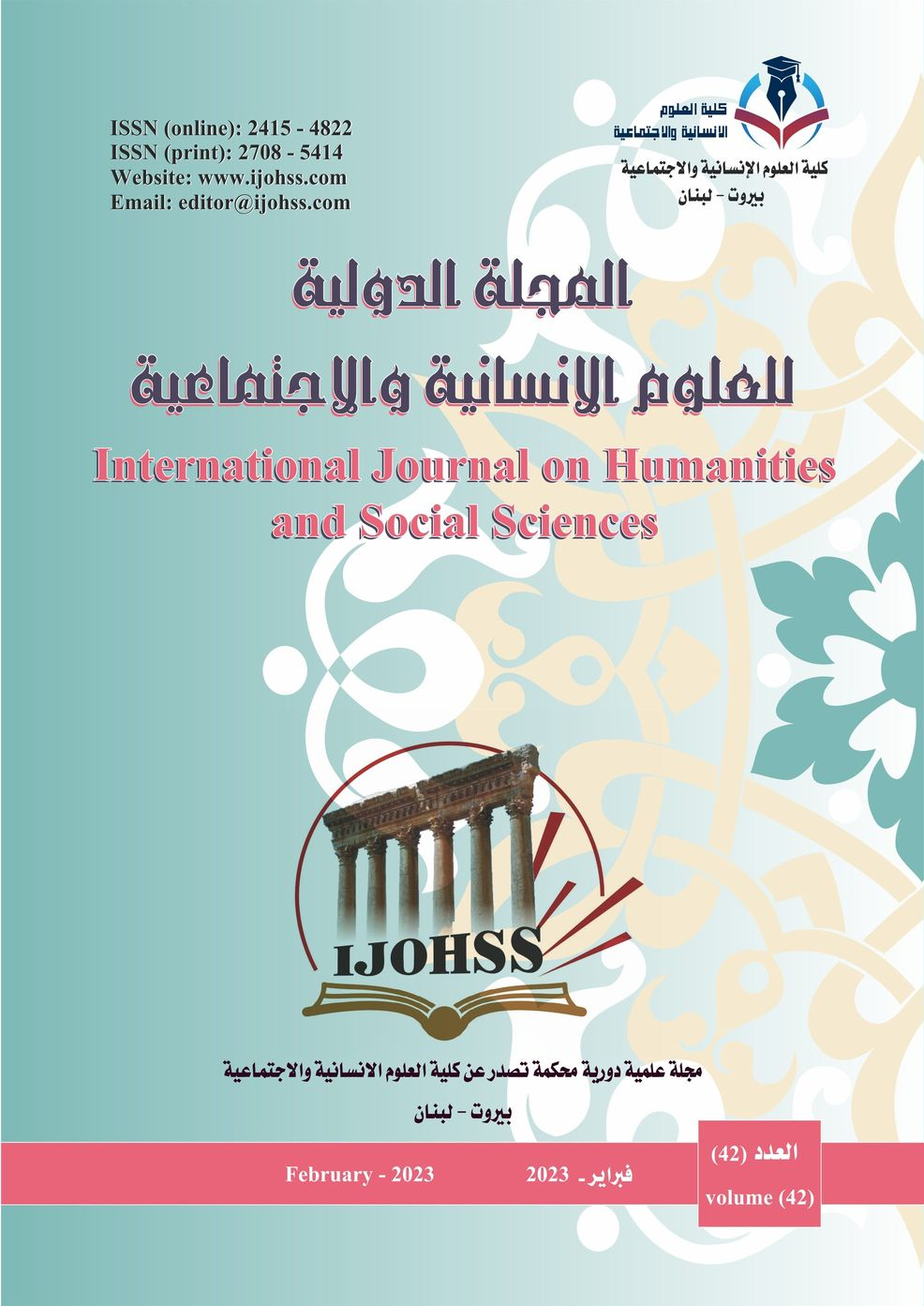Philosophical Interpretation of Lexical and Sentential Ambiguity in English-Arabic Translation
الملخص
Translation debates have continued to be passionately argued. The study of the connection between philosophy and translation on the one hand and ambiguity in translation on the other hand have both been growing. The connection between philosophy and translation is unavoidable and inevitable. Notwithstanding, philosophers have not tackled the question of translation directly; translation in general has been tackled indirectly by some philosophers. Ambiguity in translation is a fertile field to investigate. Translation of some written sentences is problematic since they are translated from different contexts in culture.
This paper aims to (1) study the connection between philosophy and translation on the one hand, and then (2) connect the philosophical interpretation of ambiguous sentences and their effect on the translation from English into Arabic. This paper also aims at (3) discussing the question that is hissing in the translator’s mind in order to translate an ambiguous sentence: whether to lean on syntactic or semantic dis-ambiguation. As a result, this paper hypothesizes that lexemes meaning, interpretation, and thus translation is not only sentence bound but clear cotext and context bound.
Therefore, to test this hypothesis, in my research, the study selects some sentences from some research and dictionaries which are believed to be ambiguous. The examples I have selected may not cover all ambiguous English sentences, for ambiguous sentences are still turning up, however, I have tried to cover frequently used sentences. I will look at some common difficulties in the interpretation of lexical items. Then, the ambiguity of these sentences will be removed by using these sentences with the same ambiguous lexemes in clear cotext and context. After removing the ambiguity, the sentences will be translated into Arabic to show the impact of both cotext and context on translation.
المراجع
2. Derrida, and Christie McDonald. The Ear of the Other: Text and Discussion with Jacques
3. Derrida: Otobiography, transference, translation. Lincoln and London: the University of Nebraska Press, 1985. Print.
4. Gaddis-Rose, Marilyn. Translation Spectrum: Essay in Theory and Practice. Albany: the State University of New York Press 1981. Print.
5. Heidegger, Martin, Nietzsche: The Will to Power as Art. Harper Collins Publishers, 1981. Print.
6. Hornby, A.S. (`1985): Oxford Advanced Learner’s Dictionary Oxford: Oxford University Press.
7. Lascarides, A. and Asher, N. (1993): “Temporal Interpretation Discourse Relations and Common Entailment”. In: Linguistics and Philosophy, Vol. 16, pp. 437-493.
8. “Mail Definition of Mail in English by Oxford Dictionaries.” Oxford Dictionaries English, Oxford Dictionaries, 26 Oct. 2017, 1:51, en.oxforddictionaries.com/definition/mail.
9. Malinowski, B. (1923). The Problem of Meaning in Primitive Language. New York: Harcourt, Brace & World.
10. Nietzsche, Friedrich Wilhelm, Reinhold Grimm, and Caroline Molina y Vedia. Philosophical Writings. New York: Continuum International Publishing Group, 1995. Print.
11. Palmer, Frank Robert. Semantics, Cambridge: Cambridge University Press. 1981. Print.
12. N. Asher, Reference to Abstract Objects in Discourse: A Philosophical Semantics for Natural Language Metaphysics, Kluwer Academic Publishers, Studies in Linguistics and Philosophy series Vol. 50, 1993.
13. Pustejovsky, J. (1991): “The Generative lexicon”. In: Computational Linguistics, Vol. 17, pp. 409-441.
14. Pustejovsky, J. and Boguraev, B. (1996): Introduction: Lexical Semantics in Context, Oxford: Clarendon Press.
15. Pustejovsky, J. and Bouillon, T. (2004): “Sentence Meaning and Utterance Meaning”. In: Semantics, Vol. 7. No. 2, pp. 50-160.
16. Rundell, M. (2000): Longman Essential Activator, London: Longman.
17. Robinson, Douglas. Western Translation Theory From Herodotus to Nietzsche. Manchester: St. Jerome Publishing, 1997. Print.
18. Saussure, Ferdinand de, Course in General Linguistics, ed. Charles Bally and Albert Sechehaye, with Albert Reidlinger, trans. Wade Baskin. New York. McGraw-Hill, 1966.
19. Stageberg, Norman C. “Structural Ambiguity for English Teachers.” National Council of Teachers of English, 1968, pp. 29–34.
20. Venuti, Lawrence. The Scandals of Translation: Towards an Ethics of Difference. London and New. York: Routledge, 1998. Print.
الحقوق الفكرية (c) 2023 Dr. Arif Abdullah Saleem Al-Ashoor

هذا العمل مرخص حسب الرخصة Creative Commons Attribution-NonCommercial-NoDerivatives 4.0 International License.



